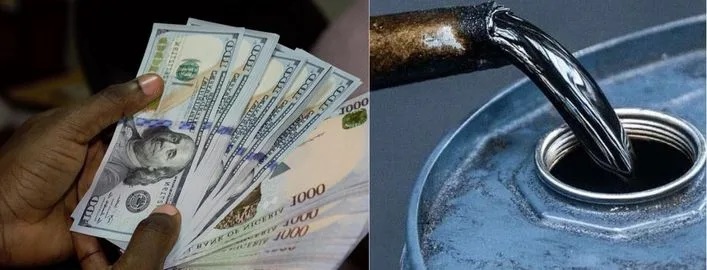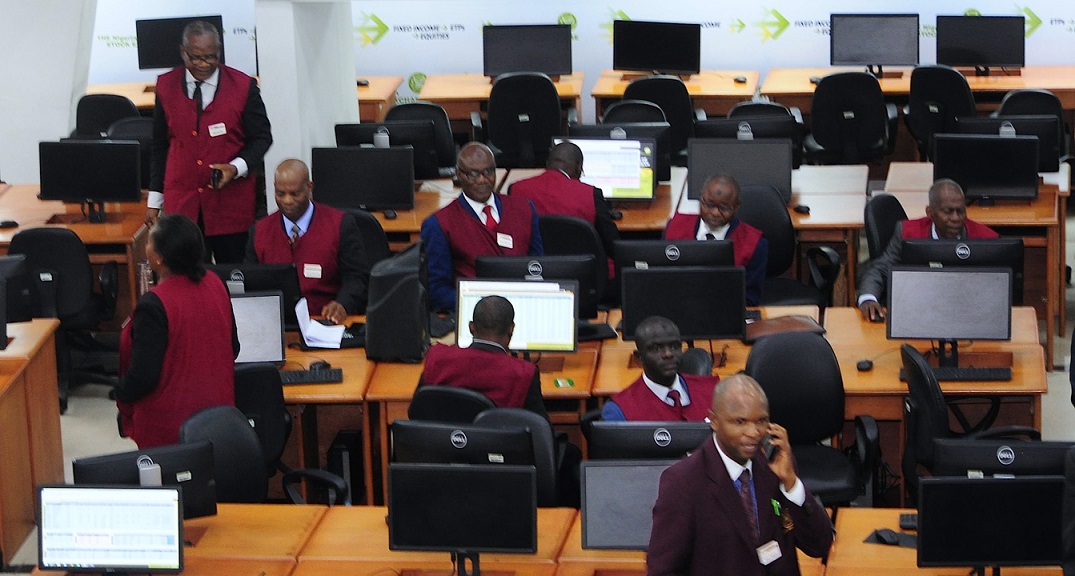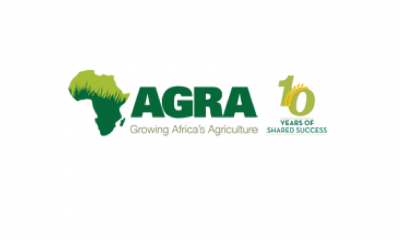Economy
High Transport Cost Affects 85% Agribusinesses Revenue in Nigeria—Survey

By Adedapo Adesanya
The high cost of transport has been identified as the leading cause of the decline in revenues of small and medium-sized agricultural enterprises in Nigeria, accounting for 85 per cent.
AGRA, an African-led and Africa-based institution dedicated to placing smallholder farmers, made this disclosure in the 3rd edition of the African Agribusiness Outlook Report which sheds light on the impact of the Triple Crisis of the COVID-19 pandemic, climate change, and the Russia-Ukraine conflict, on small and medium-sized agribusinesses in Nigeria, Zambia, and Tanzania.
The report, which is jointly produced by AGRA and IPSOS, surveyed 1,623 small and agribusinesses in the rice, maize, and tomato value chains in the three counties, and the soybean, maize, and tomato value chains in Zambia.
The past three years have presented huge shocks across multiple sectors.
First, COVID-19 created disruptions across all levels of the supply chains, then two years later as actors started to recover, the Russia-Ukraine crisis surfaced new shocks and disruptions to global supply chains and oil supply, which continue to be felt today. At the same time, there have been the unprecedented effects of climate change that are recording significant negative impacts on productivity downstream.
Agribusinesses in agricultural value chains in Nigeria, Tanzania, and Zambia, have been hard hit by the triple crisis. Although the larger businesses were hardest hit in Nigeria and Zambia in 2020, these businesses appear to have been better able to recover as of 2023.
While supply, demand, and operational costs were significant challenges during the peak of the COVID-19 pandemic, the report reveals that businesses continue to grapple with soaring operational expenses in the wake of climate-related impacts and the ongoing conflict in Ukraine.
The report disclosed that 58 per cent of SMEs surveyed have experienced substantial revenue declines of 20 per cent or more throughout the “triple crisis” period.
It found that 51 per cent of Nigerian agric SMEs reported a decline in revenue since the 2019 COVID-19 outbreak with the high cost of transport identified as a leading cause of the drop.
Maize was the hardest-hit crop in 2020 in the country with medium-sized businesses affected the most but recovered faster than smaller businesses.
Other areas of the survey showed that 42 per cent of SMEs in Nigeria injected more capital into their businesses, 36 per cent reduced staff as part of cost-cutting measures, and while loan uptake grew over the past few years, only 12 per cent of Nigerian SMEs took out loans to cope with the crisis, citing perceived affordability as a barrier.
Mrs Agnes Kalibata, President of AGRA, noted that Agribusinesses have exhibited remarkable adaptability, innovation, and determination, on the one hand, but continue to struggle amidst business disruptions through lockdowns, supply chain disruptions, productivity decreases, and reduced consumer demand.
“There is an urgent need for measures to effectively address and alleviate the impacts of these crises on the sector that serves as the primary employer, engaging over 70 per cent of Africa’s population in economic activities and contributing more than 30 per cent to the continent’s economies,” she said.
Economy
Unlisted Securities Market Gains 1.88%

By Adedapo Adesanya
Five price advancers buoyed the NASD Over-the-Counter (OTC) Securities Exchange by 1.88 per cent on Tuesday, March 3, as the demand for unlisted stocks continues to grow.
During the session, the market capitalisation added N46.64 billion to close at N2.524 trillion versus the Monday session’s N2.477 trillion, and the NASD Unlisted Security Index (NSI) increased by 77.94 points to finish at 4,219.47 points compared with the previous day’s 4,141.53 points.
11 Plc gained N13.23 yesterday to sell at N290.23 per share compared with the preceding session’s N277.00 per share, FrieslandCampina Wamco Nigeria Plc appreciated by N7.76 to N117.76 per unit from N110.00 per unit, Central Securities Clearing System (CSCS) Plc improved by N7.05 to N84.05 per share from N70.00 per share, First Trust Mortgage Bank Plc added 17 Kobo to close at N1.92 per unit versus N1.75 per unit, and Industrial and General Insurance (IGI) Plc advanced by 4 Kobo to settle at 49 Kobo per share versus 45 Kobo per share.
On the flip side, Food Concepts Plc dropped 37 Kobo to sell at N3.39 per unit compared with the previous day’s N3.76 per unit, and NASD Plc dipped 20 to N56.21 per share from N56.41 per share.
On Tuesday, the volume of securities went down by 19.6 per cent to 1.4 million units from 1.8 million units, but the value of securities increased by 447.2 per cent to N93.4 million from N17.1 million, and the number of deals soared by 118.5 per cent to 59 deals from 27 deals.
At the close of transactions, CSCS Plc remained the most active stock by value (year-to-date) with 35.8 million units sold for N2.2 billion, trailed by Okitipupa Plc with 6.3 million units worth N1.1 billion, and Geo-Fluids Plc exchanged 122.8 million units valued at N480.4 million.
The most active stock by volume (year-to-date) was Resourcery Plc with 1.05 billion units worth N408.7 million, followed by Geo-Fluids Plc with 122.8 million units worth N480.4 million, and CSCS Plc with 35.8 million units transacted for N2.2 billion.
Economy
Naira Depreciates at Official Market to N1,384/$1

By Adedapo Adesanya
The Naira continued to depreciate against the United States Dollar in the different segments of the foreign exchange (FX) market on Tuesday, March 4.
During the session, it lost N6.27 or 0.46 per cent in the Nigerian Autonomous Foreign Exchange Market (NAFEX) to close at N1,384.29/$1, in contrast to the previous trading day’s N1,378.02/$1.
The local currency depreciated against the Pound Sterling in the official market yesterday by N3.92 to quote at N1,842.22/£1 versus the previous day’s N1,846.14/£1, but gained N6.79 on the Euro to close at N1,606.19/€1 compared with Monday’s rate of N1,612.98/€1.
In the parallel market, the Naira further lost N10 against the Dollar during the trading day to settle at N1,375/$1 compared with the preceding session’s N1,375/$1, and at the GTBank FX desk, it was traded at N1,373/$1.
The exchange rate has been trending down for over 10 days following an unusual FX purchase activity by the Central Bank of Nigeria (CBN) at the official market in February.
However, the Naira is expected to trade with a stable bias in line with prevailing market demand and supply dynamics, supported by an improving external reserves position.
Nigeria’s strong net reserves position has been touted as enough, as it rose 50.5 per cent year-on-year to $34.8 billion in 2025 from $23.11 billion in 2024.
The Governor of the apex bank, Mr Yemi Cardoso, said that the growth in external reserves reflects stronger external sector fundamentals and sustained policy reforms.
He stated that the figures emphasised the benefits of increased transparency and credibility in foreign exchange management, boosting investor confidence, attracting stronger FX inflows, and improving reserve management practices aimed at preserving capital, ensuring liquidity, and supporting long-term sustainability.
As for the cryptocurrency market, most majors recovered from the weekend lows but couldn’t sustain it over a 24-hour trading period, leaving the market in a holding pattern while it waits for clarity on the Iran situation.
Cardano (ADA) slumped 3.5 per cent to $0.2600, Dogecoin (DOGE) dropped 2.7 per cent to trade at $0.0889, Ethereum (ETH) went down by 1.2 per cent to $1,970.48, Ripple (XRP) depreciated by 0.8 per cent to $1.35, and Solana (SOL) decreased by 0.6 per cent to sell at $85.22.
On the flip side, Litecoin (LTC) increased by 1.2 per cent to $54.60, Bitcoin (BTC) added 0.5 per cent to sell for $68,207.17, and Binance Coin (BNB) rose 0.1 per cent to $632.25, while the US Dollar Tether (USDT) and the US Dollar Coin (USDC) remained unchanged at $1.00 each.
Economy
Investors Gain N711bn Trading Nigerian Equities in One Day

By Dipo Olowookere
A 0.57 per cent growth was recorded by the Nigerian Exchange (NGX) Limited on Tuesday, resulting in the portfolios of investors swelling by N711 billion, with the market capitalisation closing at N126.199 trillion compared with the previous day’s N125.488 trillion.
In the same vein, the All-Share Index (ASI) increased at the close of transactions by 1,107.73 points to 196,621.96 points from 195,514.23 points.
Buying pressure was across the key sectors of the market yesterday, with the energy index outshining after it closed higher by 4.52 per cent. The insurance counter appreciated by 1.55 per cent, the consumer goods space improved by 0.88 per cent, the industrial goods sector gained 0.17 per cent, and the banking segment expanded by 0.04 per cent.
Investor sentiment was bullish after Customs Street finished with 39 price gainers and 35 price losers, representing a positive market breadth index.
Sunu Assurances gained 10.00 per cent to trade at N4.84, UAC Nigeria also appreciated by 10.00 per cent to N106.70, Oando grew by 9.96 per cent to N50.25, Sovereign Trust Insurance surged 9.88 per cent to N2.67, and Fortis Global Insurance rose by 9.71 per cent to N1.13.
Conversely, Fidson lost 10.00 per cent to settle at N81.00, Mecure decreased by 9,95 per cent to N68.30, Aluminium Extrusion slipped by 9.88 per cent to N15.50, McNichols gave up 8.26 per cent to quote at N7.00, and Deap Capital shed 8.17 per cent to N6.52.
A total of 880.0 million stocks worth N44.5 billion exchanged hands in 86,761 deals on Tuesday compared with the 789.9 million stocks valued at N35.1 billion traded in 84,259 deals on Monday, showing a spike in the trading volume, value, and number of deals by 11.41 per cent, 26.78 per cent, and 2.97 per cent, respectively.
Fortis Global Insurance led the activity chart with 58.4 million equities valued at N66.0 million, Sterling Holdco traded 56.8 million shares worth N461.0 million, Japaul exchanged 47.3 million stocks for N189.0 million, Zenith Bank transacted 40.9 million equities valued at N3.8 billion, and Jaiz Bank sold 38.7 million shares worth N483.7 million.
-

 Feature/OPED6 years ago
Feature/OPED6 years agoDavos was Different this year
-
Travel/Tourism10 years ago
Lagos Seals Western Lodge Hotel In Ikorodu
-

 Showbiz3 years ago
Showbiz3 years agoEstranged Lover Releases Videos of Empress Njamah Bathing
-

 Banking8 years ago
Banking8 years agoSort Codes of GTBank Branches in Nigeria
-

 Economy3 years ago
Economy3 years agoSubsidy Removal: CNG at N130 Per Litre Cheaper Than Petrol—IPMAN
-

 Banking3 years ago
Banking3 years agoSort Codes of UBA Branches in Nigeria
-

 Banking3 years ago
Banking3 years agoFirst Bank Announces Planned Downtime
-

 Sports3 years ago
Sports3 years agoHighest Paid Nigerian Footballer – How Much Do Nigerian Footballers Earn













